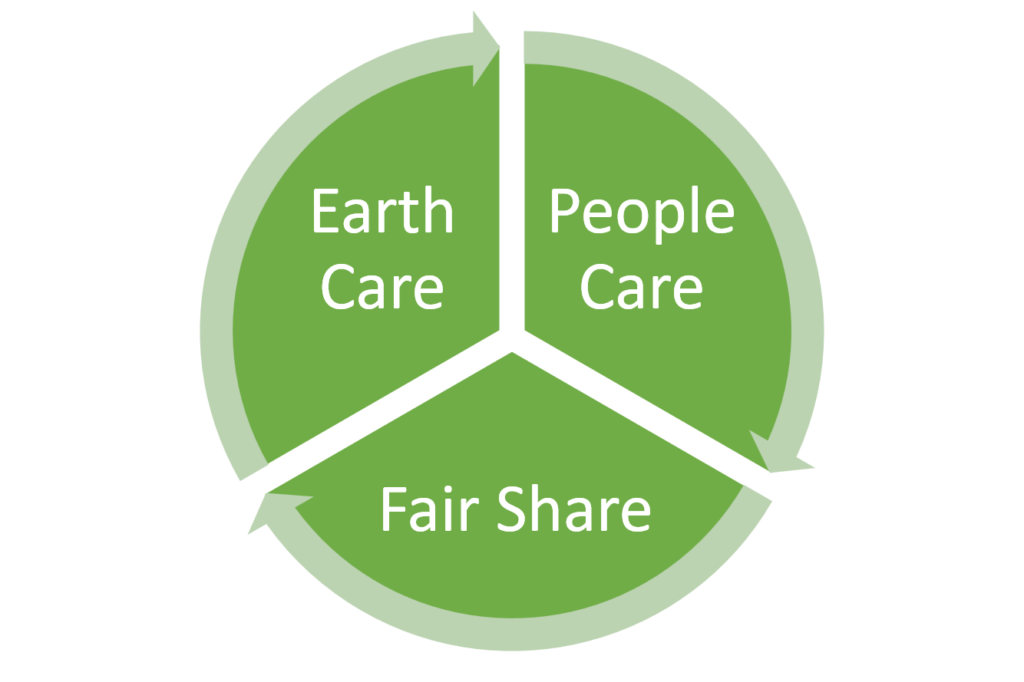
Another aspect of Permaculture, which sets it apart from many other agriculture-based systems, is that it is based upon a set of ethics. Ethics are generally a set of rules, codes, or guidelines which help to govern our moral behavior. The ethics of Permaculture are only three in number—Earth Care, People Care, and Fair Share—yet, despite the simplicity embraced within this set of moral codes, it is astonishing how absent they remain within many of today’s approaches to agriculture, economics, environment, social interactions, and governance.
Permaculture ethics—Earth Care, People Care, Fair Share—help to guide us in our pursuit of truth, justice, and virtue. If the systems that we are creating for sustaining our lives and livelihoods are not caring for the earth, if they are not caring for people, and if they are not designed to share resources equitably or return surplus back into the system, then it’s not Permaculture and it’s certainly not sustainable.
Lately, humans don’t seem to be doing very well in any of these three areas. As our harmful practices have spun out of control we have begun to see a great deal of thinking that just doesn’t make any sense at all. Ethics should be instilled in people from an early age. It starts in our homes, our schools, and our communities. If we do our job properly, the ethics will stay with us the rest of our lives and become an integral part of everything we do.
Again, we need to ask ourselves how well we’ve been doing in this area. The picture below is a poster which was being sold in a local shop in Malawi. It represents the exact opposite of earth care, people care, and fair share…and somebody actually took time and money to market this towards babies.

Back in the late 1990’s, we came across a manual entitled Teaching Conservation in Developing Nations. In the forward of this manual there was a quote which we continue to use to this day whenever teaching a course on Permaculture or Agroecology. It reads:
“People will not preserve and protect a natural environment which they do not understand or respect. When people learn about the relationship of all forms of life to each other and to the earth, they begin to have a responsible attitude toward natural resources and their wise use.”
As Pope Francis pointed out in his Encyclical on Climate Change, “We need to strengthen the conviction that we are one single family. There are no frontiers or barriers, political or social, behind which we can hide, still less is there room for the globalization of indifference.” We don’t need to go to a church or mosque or temple to assume an ethical or moral responsibility towards preserving and protecting our environment, we just need to have an understanding and a respect of the internal workings of that environment. In other words, we need to find a bit of ‘truth.’
In Ralph Waldo Emerson’s essay on Nature, he wrote that: “The moral difference of nature upon every individual is that amount of truth which it illustrates to him.” And, in the same essay, he stated that: “A life in harmony with Nature, the love of truth and of virtue, will purge the eyes to understand her text. By degrees we may come to know the primitive sense of the permanent objects of nature, so that the world shall be to us an open book, and every form significant of its hidden life and final cause.”
All donations go directly towards helping to spread Permaculture solutions throughout Malawi. Every little bit helps, and even a little can go a long way!
